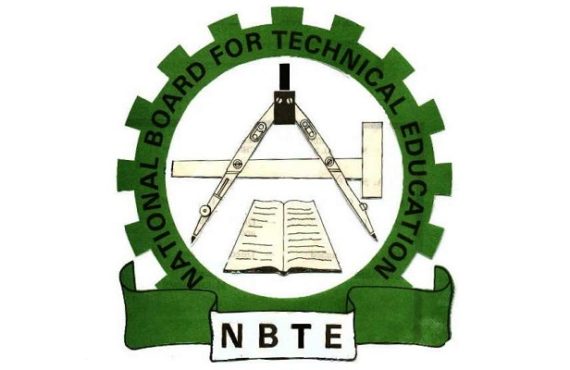Lift embargo on employment of lecturers
The National Board for Technical Education (NBTE) recently raised an alarm over the shortage of academic staff that is gradually grounding the country’s federal polytechnics. These institutions are said to be facing human resource challenges following government’s embargo on employment. There is, consequently, growing apprehension among staff and students because academic programmes with shortage of […]

National Board for Technical Education (NBTE)
The National Board for Technical Education (NBTE) recently raised an alarm over the shortage of academic staff that is gradually grounding the country’s federal polytechnics. These institutions are said to be facing human resource challenges following government’s embargo on employment. There is, consequently, growing apprehension among staff and students because academic programmes with shortage of requisite manpower are usually de-accredited any time they are presented for accreditation. As a requirement of the NBTE for earning full accreditation, polytechnics applying for accreditation and re-accreditation of their programmes are expected to meet the required staff-student ratio.
According to media reports, the Executive Secretary of the NBTE, Prof. Idris Bugaje and the Committee of Federal Rectors (COFER), which is the umbrella body of rectors of federal polytechnics in Nigeria, separately wrote to seek the intervention of the Minister of Education and the Head of Civil Service of the Federation. For instance, Bugaje in a letter with ref no: C/TEB201/VOL.VII/80 dated October 7, 2021, stated that “Most of the federal polytechnics would lose accreditation due to inability to replace retired and exited staff”. Describing the situation as worrisome, Bugaje noted that the sector risks losing the gains it recorded over the years. Bugaje had appealed to the minister to endorse the request by the federal polytechnics to replace exited staff for the approval of President Muhammadu Buhari.
In a previous letter written on May 10, 2021, to the Head of Service of the Federation, the NBTE boss mentioned that the situation was hampering new programmes including Railway Engineering, Gas Engineering and Mechatronics Engineering, which were conceived to fast track the development of the country. Similarly, COFER had, in its letter of appeal to the Head of Service on October 5, 2021, expressed the fears that the embargo on employment could deprive the national economy of the much-needed manpower.
The manpower story in the country’s federal universities is not in any way different from the lamentable situation in polytechnics. It is predictably worse because the last time recruitment of staff for tenure appointments was done in many federal universities was over a decade ago. All efforts by some of the vice chancellors to secure recruitment waivers to save ivory towers from the acute manpower challenge failed. This is even as some MDAs including the Central Bank of Nigeria, the Nigerian National Petroleum Corporation, the Federal Inland Revenue Service, the Nigeria Deposit Insurance Corporation and other ‘juicy’ agencies were often granted and sometimes pampered to accept such waivers, which tertiary institutions have been begging for over the years.
Government’s selective response to the manpower needs of agencies has several implications for ordinary Nigerians. While some citizens may see the response as elitist, others would see the granting of waivers to MDAs where wages and conditions of service are more attractive than what obtains in tertiary institutions as an attempt by the government to create employment opportunities for children of the highly placed.
The long years of the embargo placed on employment in tertiary institutions in the country have, and are yet, impacting negatively on public-owned higher institutions. One thing often leads to another. Many academic programmes in these institutions have lost accreditation for failing to meet the required staff-student ratio. Many academic staff members have left the system on retirement, death or transferred their service to other sectors; putting the few lecturers left in most programmes under workload pressure. The workload pressure on the few lecturers left in the system is, certainly, not without its attendant consequences on the quality of teaching and by extension the products of these under-staffed institutions. These few lecturers left in various programmes have also earned promotions to higher ranks; making such programmes to become top-heavy and bottom-light in terms of staff strength. The approach by some institutions to, as an interim measure, recruit staff on a part-time or adjunct basis has also become a burden due to the lack of adequate budgetary provisions.
We do not encourage the government to grant waivers because such would be attached to some needless strings. To save Nigeria’s higher education from this inexcusable manpower challenge, we call on the federal government to immediately lift the embargo on employment of lecturers so that the huge vacuum created by the employment embargo would be filled.
